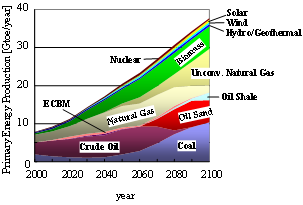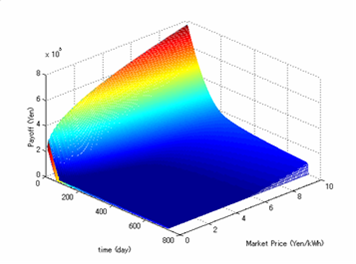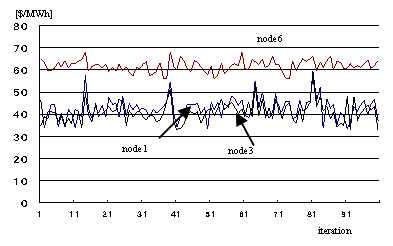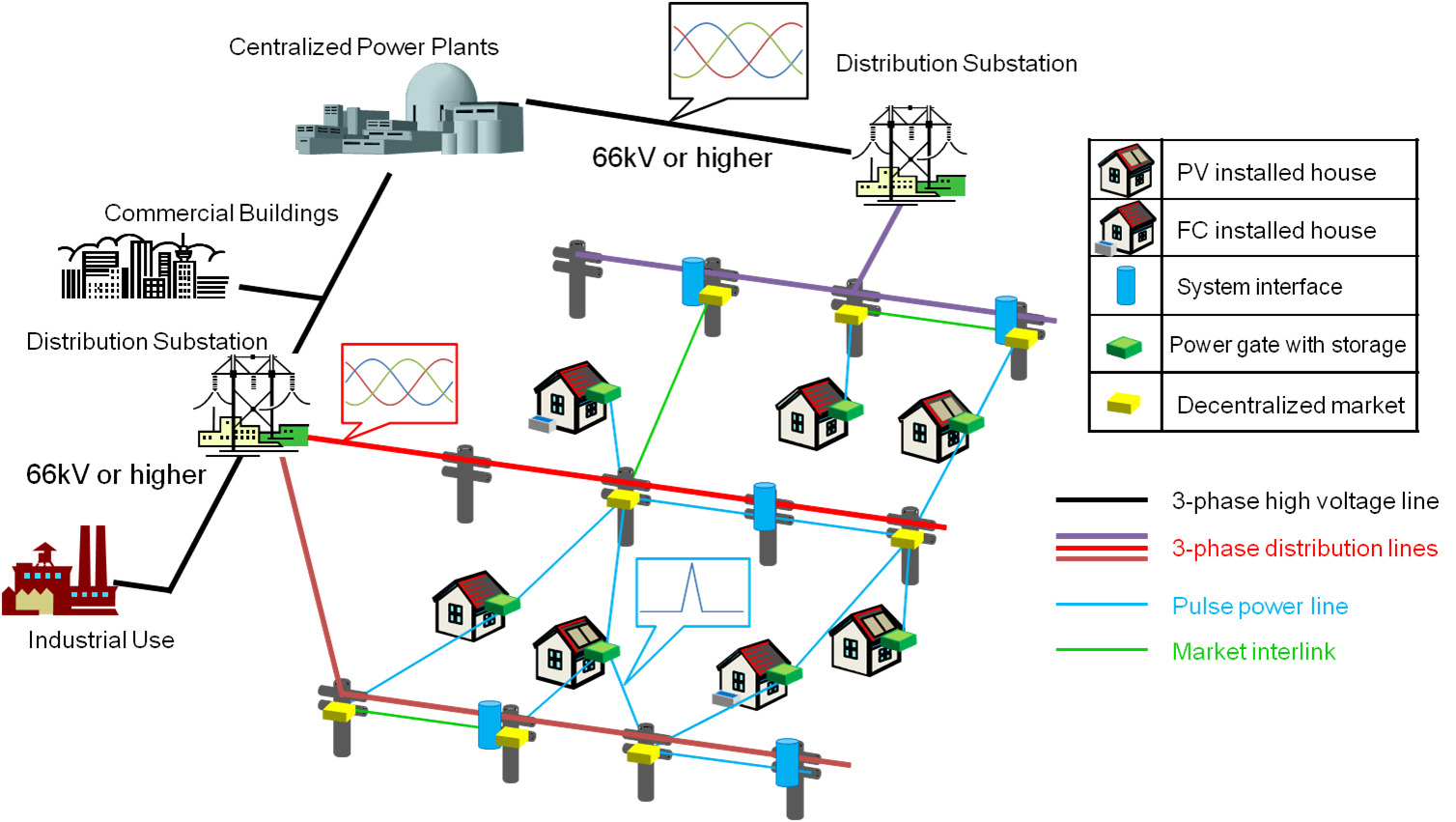|
|
| Outlook of Research Topics |
Our recent interests are focused on the following issues.
- Evaluations of the mitigation measure against a global warming issue by
the large-scale global energy system model, and analyses of governmental
policies for energy security and environment through computer simulation
based on game theory
- Analysis of mechanism design of various energy and power markets by artificial market models
- Decision-making support and real option evaluation under the uncertainty
for energy industries, using the stochastic dynamic programming method
or the financial engineering techniques
- Evaluation of the influence of the extensive introduction of distributed
energy systems on national energy demand and supply balances
- Evaluation of technological feasibility and socio-economic impacts of the
realization of a fully electrified society and a hydrogen society, in which
non-fossil energy resources are to be utilized extensively
|
Policy Assessment of Energy Security with a Global Energy Model of Multi-agent
Type
Secure procurement of energy resources is one of the most highly prioritized
national policy subjects. However, it is very difficult for conventional
energy supply and demand models to evaluate appropriately national energy
security in the situation where a national interest of each country can
be opposed to each other. This is because the conventional energy models
assume fully competitive world energy markets and harmonized equilibrium
states of world energy trades. In this research, we attempt to simulate
the formation of energy procurement strategies of multiple countries which
have strong mutual interests in each other, under assumption of maximizing
their own self interests, by using the energy model formulated as a multi-agent
system. |
 |
International Policy Assessment of Climate Change
A global energy model is applied to the assessment of the so-called Kyoto
Mechanism which comprises ET (Emissions Trade), JI (Joint Implementation)
and CDM (Clean Development Mechanism), aiming at the more efficient emissions
reduction of greenhouse gases. The global energy model takes account of
various technological options to cope with the global warming, minimizing
the total energy system cost. The options considered in this study include
energy efficiency improvements, nuclear power, renewable energy resources
such as biomass, and CO2 capture and storage. |
 |
Stochastic Optimal Electric Power Procurement Strategies with Uncertain
Market Prices
Distribution companies have to take the risk stemming from the price fluctuation
of a wholesale market instead of the customers. This entails the necessity
to develop a certain method to make an optimal strategy for electricity
procurement under this particular uncertainty. This research has the purpose
for proposing the mathematical method based on dynamic programming with
stochastic differential equations, to evaluate the value of a long-term
bilateral contract of electricity trade, and also the value of a project
of combination of the bilateral contract, power generation with their own
generators. |
 |
Study on the Mechanism Design of the Market of Power Transmission Rights
In order to pursue economical efficiency, deregulation of an electric power
industry is advanced globally. Electric power system planning in the deregulated
industry is greatly different from the one before, and competition as well
as cooperation of multiple decision makers who pursue their own self-interests
must be taken into account. In this study, a model of the market of power
transmission rights in the electric power industry is formulated on the
basis of the game theory and a power transmission network model. The purpose
of the study is to analyze the behavior of the transmission right market
through multi-agent based computer simulation, and is to clarify the mechanism
design problems of the market. |
 |
Evaluation of the Influence of the Extensive Introduction of Distributed
Power Sources on the National Power System
Distributed power sources have been steadily increasing their total installed capacity. By connecting several distributed power sources, as well as electric utility network, a novel power supply network can be built, which is economically more efficient and environmentally more benign. The purpose of the study is to evaluate the influence of the extensive introduction of distributed power sources on the national electric power supply systems, through the use of a cluster of thousands of agent-type models. The model integrates a household energy demand simulation model of bottom-up type, and an optimal operation model for distributed power sources based on stochastic dynamic programming. |
 |
Study on Coordinated Operation of Autonomous Small Scale Decentralized
Power Supply Systems
Distributed power generation technologies such as wind turbines, solar
cells and co-generation systems are gaining the opportunities of participating
into grid power systems due to rapid technology improvement. The purpose
of this study is to analyze potential of autonomous small scale decentralized
power supply systems which involves distributed power sources and electricity
storage facilities, through the numerical simulation of their coordinated
operation based on the signals of electricity prices. Here we assume that
each decentralized system communicates only with its neighboring systems,
and that electricity is traded intermittently between the systems on demand. |

Power Transaction Network |
|
|

